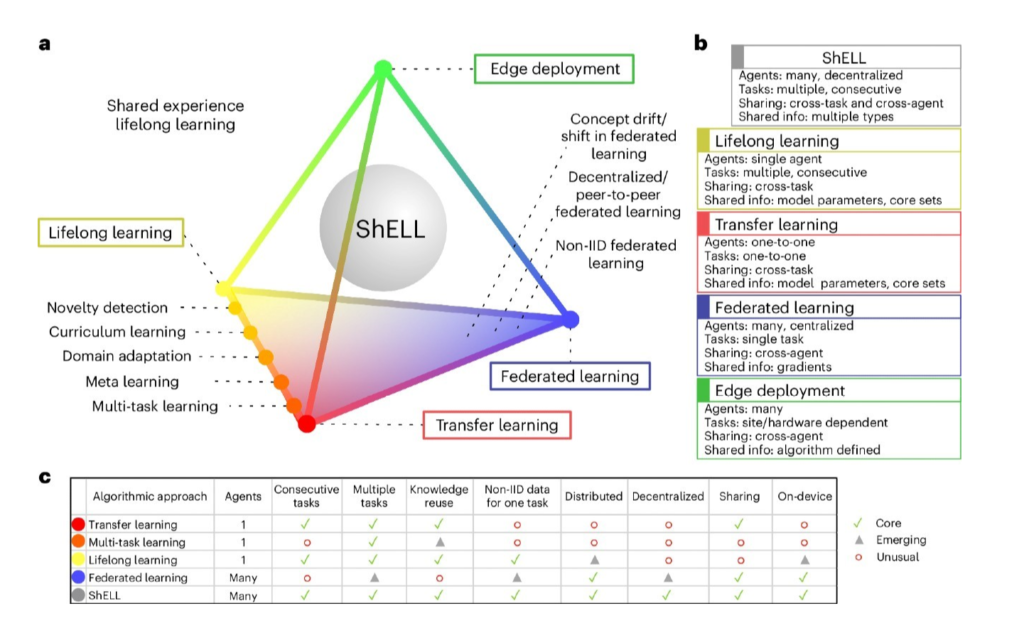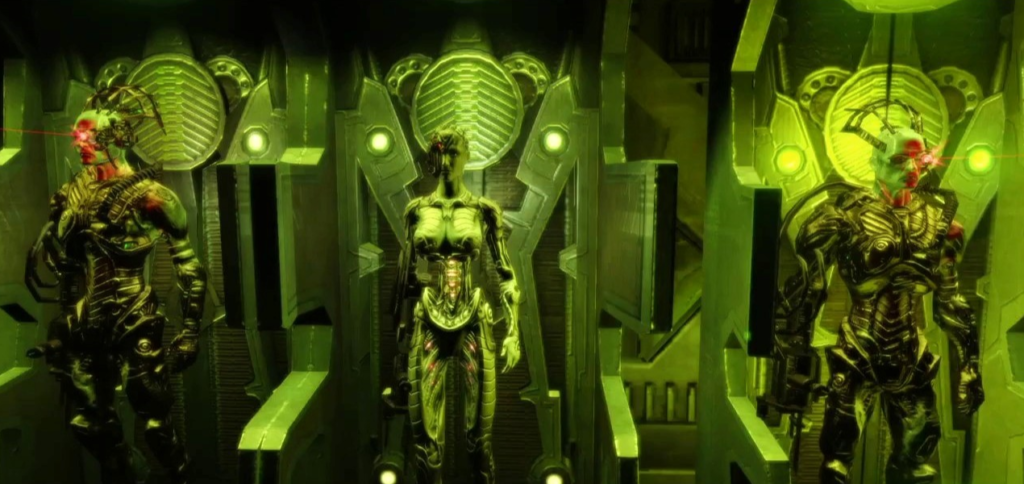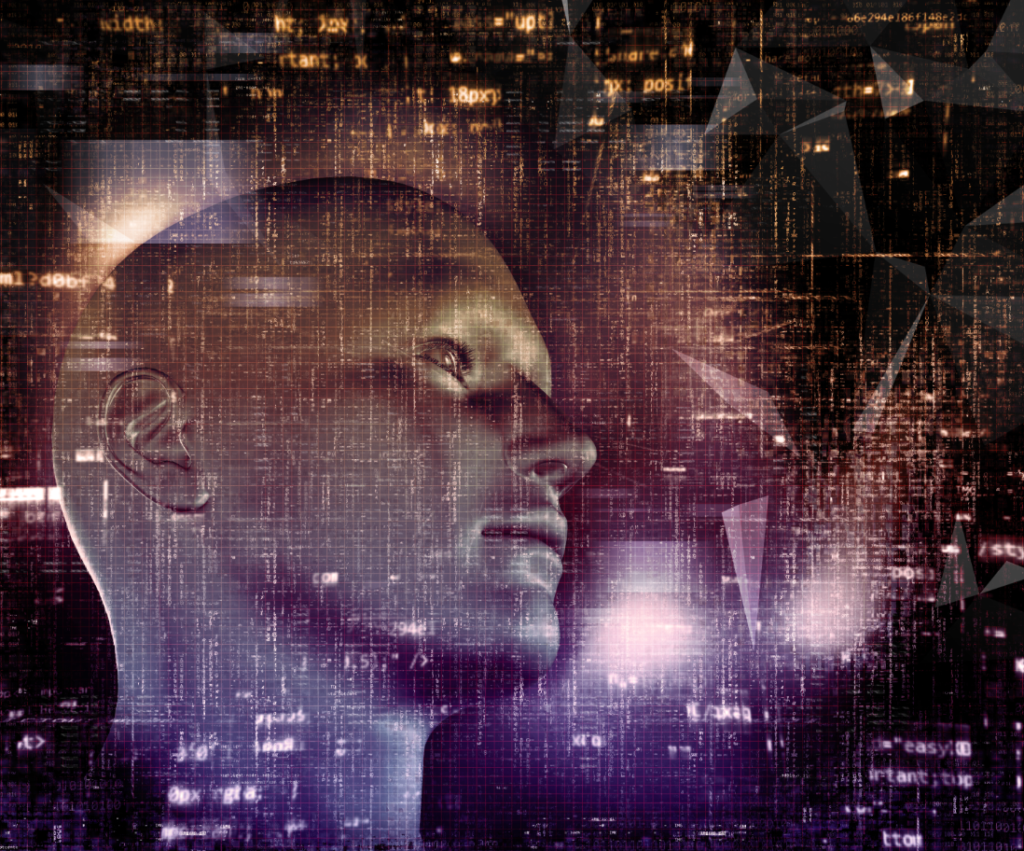Leading computer scientists from around the world have shared their vision of what lies ahead.
The human species must prepare for the emergence of “collective artificial intelligence,” where numerous units of artificial intelligence, each capable of continuously acquiring new knowledge and skills, form a network for exchanging information, claim 30 experts in artificial intelligence from 18 higher education institutions, including professors from Loughborough University, MIT, and Yale, as well as experts from technology companies such as Smart Information Flow Technologies, ECS Federal, Aurora Flight Sciences, and Sony AI America.
‘Resistance is futile’
They recognized and described striking similarities between collective artificial intelligence and many science fiction concepts in the journal Nature Machine Intelligence.

One example cited in this article is the Borg, cybernetic organisms described in the science fiction series “Star Trek,” which act, assimilate, and share knowledge through a connected hive mind. However, unlike many SF stories, computer scientists predict that collective artificial intelligence will lead to significant positive advancements in various fields.
Like the immune system
“The current exchange of knowledge through a collective network of artificial intelligence units capable of continuous learning and adaptation to new data will enable rapid responses to new situations, challenges, or threats,” says lead researcher Dr. Andrea Soltoggio, lecturer in computer science and artificial intelligence at Loughborough University and former technical coordinator of the European large-scale integration project AMARSi with the Research Institute for Cognition and Robotics at Bielefeld University.
“For example, in cybersecurity settings, if one AI unit identifies a threat, it can quickly share knowledge and prompt a collective response, similar to how the human immune system protects the body from external attackers.”

He believes this could lead to the development of disaster response robots that can quickly adapt to conditions or personalized medical agents that improve treatment outcomes by merging cutting-edge medical knowledge with patient-specific information.
Democratization of AI agents
Researchers acknowledge that there are risks associated with collective artificial intelligence, such as the rapid spread of potentially unethical or illegal knowledge, but they emphasize the key security aspect of their vision: artificial intelligence units maintain their own goals and independence from the collective. And this, they say, “would result in the democratization of artificial intelligence agents, significantly reducing the risks of AI dominance in the hands of a few large systems.”
Analysis of the latest achievements in machine learning leads to the conclusion that the future of artificial intelligence lies in collective intelligence. Global efforts by researchers, spurred by a study initiated by the U.S. Defense Advanced Research Projects Agency (DARPA), are increasingly focused on enabling lifelong learning so that AI agents can expand their knowledge throughout their working lives and the development of universal protocols and languages that will enable AI systems to share their knowledge with each other.
Continuous adaptation
This, they say, differs from current large AI models, such as ChatGPT, which have limited lifelong learning and knowledge sharing capabilities. Such models acquire most of their knowledge during energy-intensive training and cannot continue learning.
“Recent research trends extend artificial intelligence models with the ability for continuous adaptation and make their knowledge reusable in other models, effectively recycling knowledge to optimize learning speed and energy requirements,” says Dr. Soltoggio.
Scientists believe that currently dominant large, expensive, and indivisible artificial intelligence models will not survive in a future where sustainable, evolving, and shared collective AI units are likely to emerge.
Development plan
“Human knowledge has gradually grown over millennia thanks to communication and sharing. We believe that similar dynamics are likely to occur in future societies of artificial intelligence units that will implement democratic and collaborative collectives,” says Professor Nick Jennings, Provost and President of Loughborough University.
“This document helps us set a plan for the next wave of artificial intelligence development based on multiple interactions of agents,” says this internationally recognized authority in the fields of artificial intelligence, autonomous systems, cybersecurity, and agent-based computing, and founder of several startups such as Aerogility, Darktrace, Rebellion Defense, and Reliance Cyber Systems.
